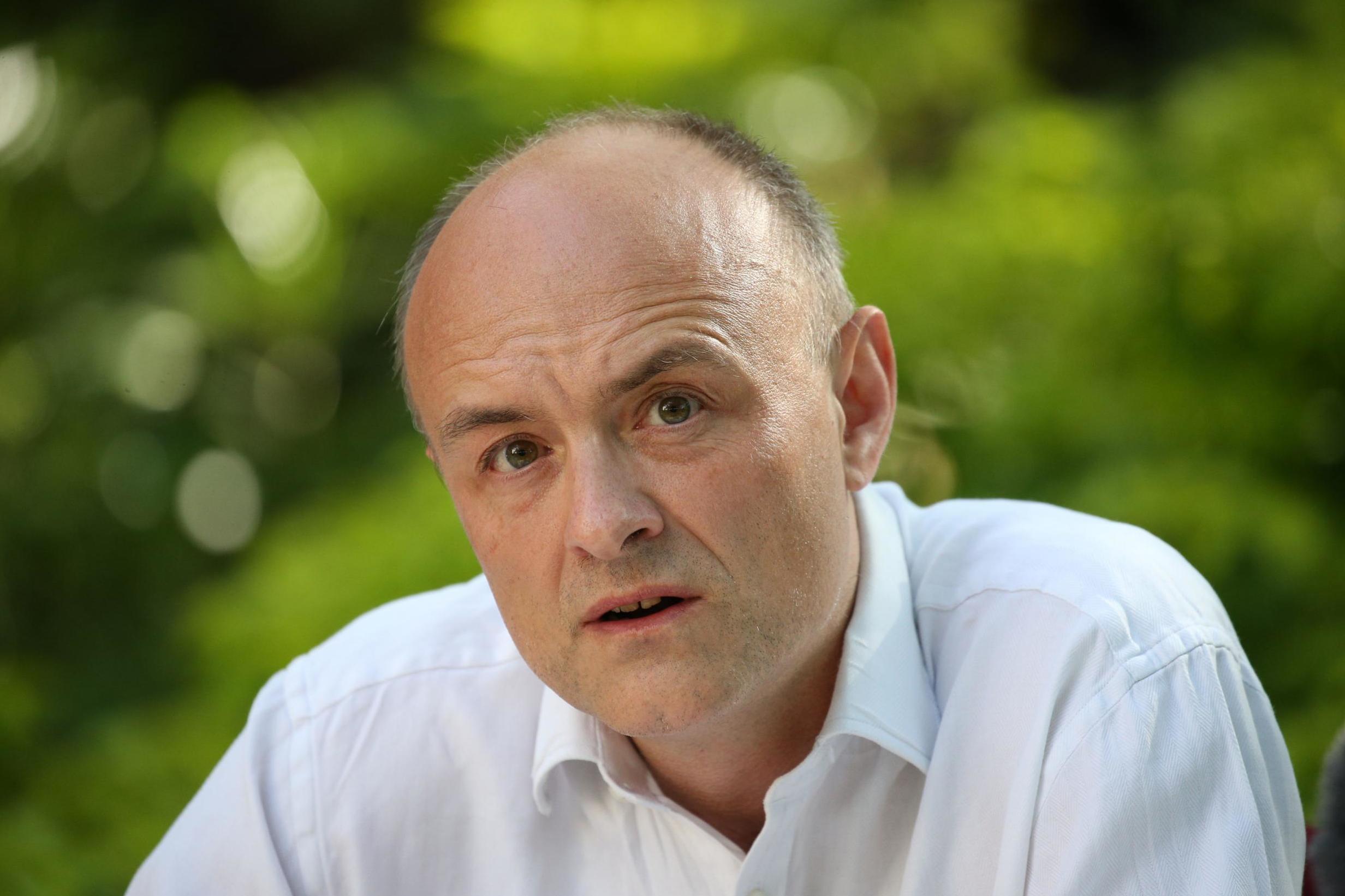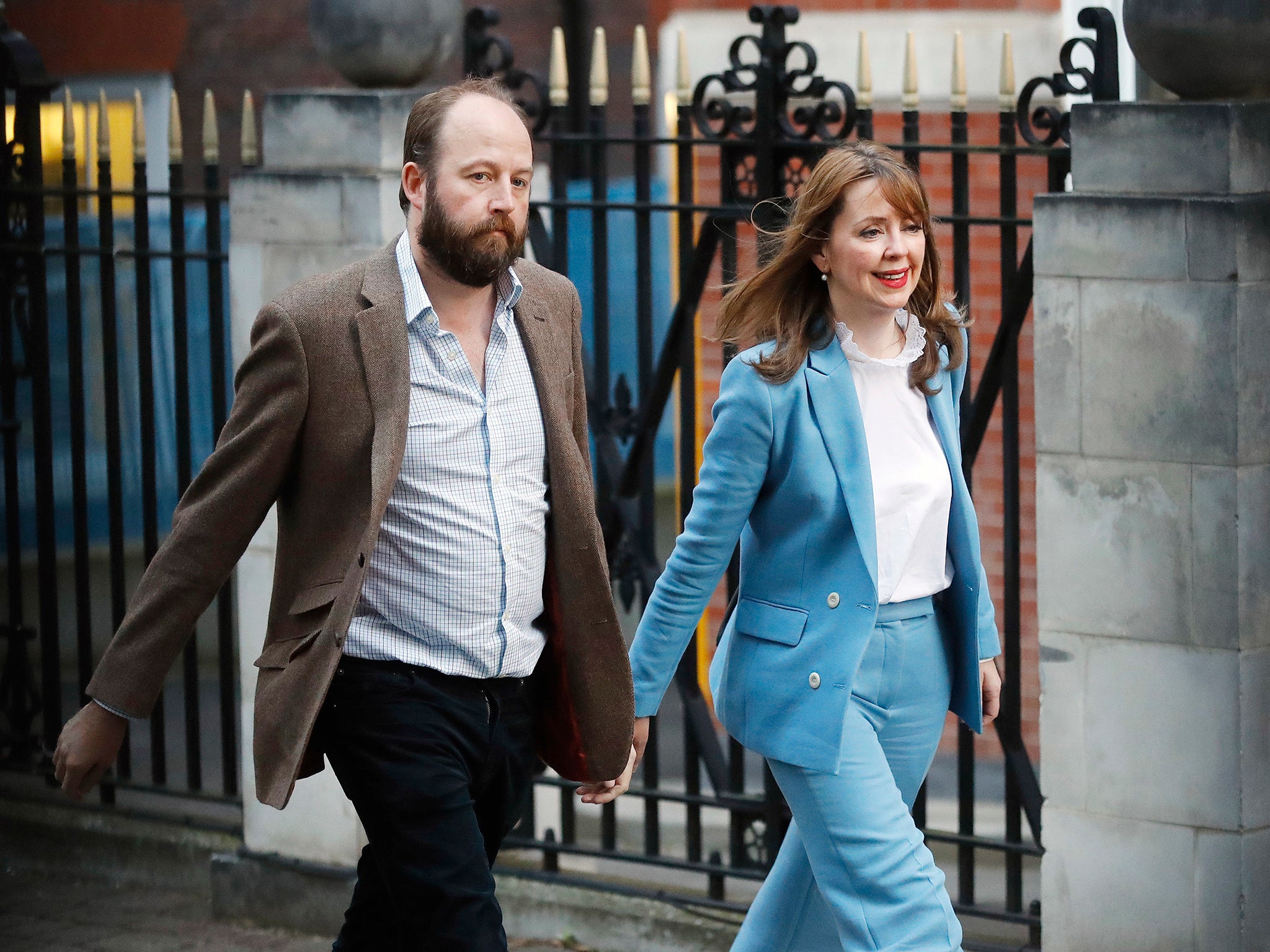Is Dominic Cummings’ radical civil service shake-up really so unprecedented?
Johnson’s chief adviser has made no secret of his hatred towards the bulk of officialdom, writes Sean O'Grady, but what does history reveal about the relationships between elected officials and their appointed advisers?


With five of the most senior civil servants pushed out of their jobs in a matter of months, including Sir Mark Sedwill, the head of the civil service and Cabinet secretary, plus a few sackings from public sector agencies, much has been written about the rapid, and dangerous, politicisation of the traditionally independent and non-partisan administrative machine. Covid and Brexit has, it’s alleged, revealed weaknesses in the structure of government (though others say it just revealed ministerial incompetences).
However, history suggests that to a large degree some of those concerns about politicisation are misplaced. As Simon Case, at 41 a youthful replacement for Sir Mark, takes over he will face the challenge of balancing the best traditions of the civil service with the novel demands of a government unusually suspicious of, if not hostile to, Whitehall’s very ethos and sense of duty. Dominic Cummings, chief adviser to Boris Johnson, in particular is keen to reshape what he sees as the “blob” of the civil service and quangocracy into a more mission-focused affair; it would be strange indeed if the prime minister and those closest to him hadn’t satisfied themselves in advance that Mr Case was up for the task of shaking things up.
The first thing to get clear, then, is that prime ministers have always tried, and usually succeeded, in surrounding themselves with officials who are politically and personally congenial to them, even if others find them abrasive or outright evil. These personalities can emerge from the traditional ranks of the civil service, be appointed to roles as special advisers or to conventional jobs done by officials, live in in-house think tanks or policy units, or indeed have no official standing whatsoever, or be merely party officials. In many cases it soon becomes irrelevant as to their background, if their competence and loyalty is sufficiently sound.
Margaret Thatcher, for example, famously asked about anyone put forward for a senior job: “Is he one of us?” In the words of the late Hugo Young, who chronicled much of her long premiership “it epitomised in a single phrase how she saw an aspect of her mission. This was to gather a cadre of like-minded people who would, with her, launch the recovery of Britain...”
“‘One of us’, in that sense, had a subversive connotation. Those who passed the test belonged to a group of partisans intent on overthrowing many reigning orthodoxies.”
Written in 1989, in a very different world, they could equally well apply to the current regime in Downing Street, except that what Mr Cummings seems to have in mind is a much more thorough revolution in the machinery of government itself, and not merely redirecting the existing (if reformed and more efficient) machine towards a more radical set of policy objectives.
And there is no doubt as to the contempt in which Mr Cummings holds the bulk of British officialdom, nor the scale of his revolutionary vision. In 2014 Mr Cummings wrote a blog about “The Failures of Westminster & Whitehall: Wrong people, bad education and training, dysfunctional institutions with no architecture for fixing errors.”

Cummings claimed that almost no minister or civil servant in his experience is “+3 standard deviations in even one relevant dimension (IQ, willpower/toughness, management ability, metarecognition, etc)”. Not long ago he advertised for “misfits and weirdos” to come and work for him; he has eroded the independence of the Treasury; he tries to control all of the special advisers. His management style has attracted criticism.
Broadly, Mr Cummings is thought to want to subsume the Downing Street staff and the Cabinet Office, and possibly HM Treasury and other parts of government into a kind of Nasa-style mission control, smashing through traditional silos and bureaucratic ghettos, opening up recruitment to a new breed of technocrats and experts. He and other pilots of the future are to be physically located in the more spacious surroundings of 70 Whitehall, albeit linked via labyrinthine tunnels to 10 Downing Street.
A good deal of this agenda of change was also laid out by Michael Gove, as the minister responsible, in the recent Ditchley Annual Lecture, in which he remarked that “the model that the current generation of political leaders inherited has been crumbling”. He urged the civil service to be less Londoncentric and less conventional and generalist.
As ambitious as it is sometimes vague, the Cummings-inspired programme of reform raises crucial questions. One is how far it damages the ability of the civil service to offer sound advice, rather than echo what ministers wish to hear, among other unfortunate tendencies. And second whether the as-yet-undefined and untried new civil service structure will actually work at all.
The Cabinet Office, for example, was created during the First World War as a small grouping to service the war cabinet’s needs, including but not confined to the prime minister of the day, David Lloyd-George, despite his presidential style. As one of Mr Case’s predecessors, Robert (now Lord) Armstrong laid things out in 1986: “Throughout its history there has been a clear thread: the Cabinet Office has seen itself and has been seen as the servant of the Cabinet and of the government collectively, its purpose being to promote and assist the discussion and resolution of issues that transcend departmental boundaries and the reaching and disseminating of conclusions and decisions commanding the collective assent of ministers. It is not a ‘Prime Minister’s Department’.”
To turn it, then, together with all the No 10 advisers, into a presidential, quasi-White House staff driven by the prime minister one would be a fundamental change, and might not work well with the existing system of departmental ministers (which might also thus have to be reformed). The result might be incredibly unwieldy; politically, cabinet ministers, already ignored, would resent their effective demotion. The centre could all too often be at war with what remains of departmental staffs. The machinery of government, and its vast budgets and research capabilities, could too easily become the servants of the incumbent political party; indeed some judge that is happening even now.

One tradition that seems worth keeping, or at least seems to be inevitable, is the way that prime ministers bond with their most senior officials, and you have to hope that Mr Case will at least have a candid as well as close partnership with Mr Johnson. Past premiers have come to rely on their senior officials, whatever their formal roles and job titles. Mrs Thatcher came to be close to Robert Armstrong, for example, even though he had served predecessors she had little time for and was of a more conventional mindset than her. Harold Macmillan leaned heavily on his cabinet secretary, Norman Brook, while Edward Heath’s faith in Sir William Armstrong (no relation to Robert), head of the civil service, was such that Armstrong was informally dubbed “deputy prime minister”. Not that, in the end, it did Armstrong much good as a result of serving on Heath’s crisis-ridden administration in the 1970s. By the time Heath’s government was about to lose power, during the three day week, Armstrong was very ill, as obsessed as his boss with “smashing” the miners’ strike and defeating inflation. An eyewitness describes the collapse, with Sir William “really quite mad at the end ... lying on the floor and talking about moving the Red Army from here and the Blue Army from there”. He was shortly packed off to Barbados for much-needed R&R.
More recently, and controversially enough at the time, Tony Blair installed Jonathan Powell as his chief of staff, in effect a political appointment but with the specially granted authority to direct career civil servants. Mr Blair’s close relationship with his press secretary, Alastair Campbell, is well-documented.
The men and women premiers come to rely on, and be guided by, cover a vast array of sometimes highly eccentric personalities, and their backgrounds or formal employment status usually become irrelevant. Bernard Ingham was a famously combative and loyal press secretary incredibly close to and trusted by Mrs Thatcher who happened to be a career civil servant (and who’d previously looked after Tony Benn’s media profile). The cast of “irregulars” with extraordinary influence on elected premiers range in roles from Winston Churchill’s scientific adviser Frederick Lindemann, known as “the prof” to Harold Wilson’s political secretary Marcia Williams (who seemed to exert an unnatural influence on the premier) to the “terrible twins”, Fiona Hill and Nick Timothy, joint chiefs of staff to Theresa May. Sometimes the cabinet secretary or the prime minister’s principal private secretary or other civil servants “join in” with the political appointees, and grow more and more identified with their boss and push the limits of neutrality, and others keep their distance. It is a difficult balancing act to get right, even in normal times. The combination of Covid, Brexit and a crisis in the public finances, as well as the gargantuan task of redesigning the governance of Britain, present Mr Case with an unprecedented set of challenges. He is an obviously able and talented public servant, and will be backed by an often brilliant staff. But as Napoleon used to say of his generals, he will also need to be lucky.
Join our commenting forum
Join thought-provoking conversations, follow other Independent readers and see their replies
Comments